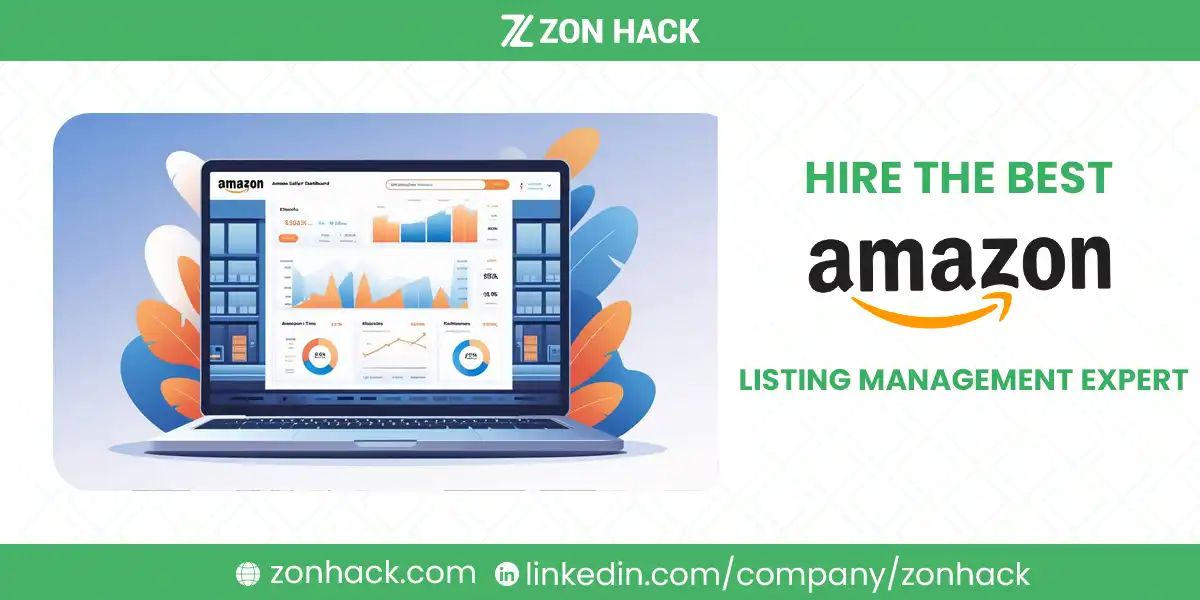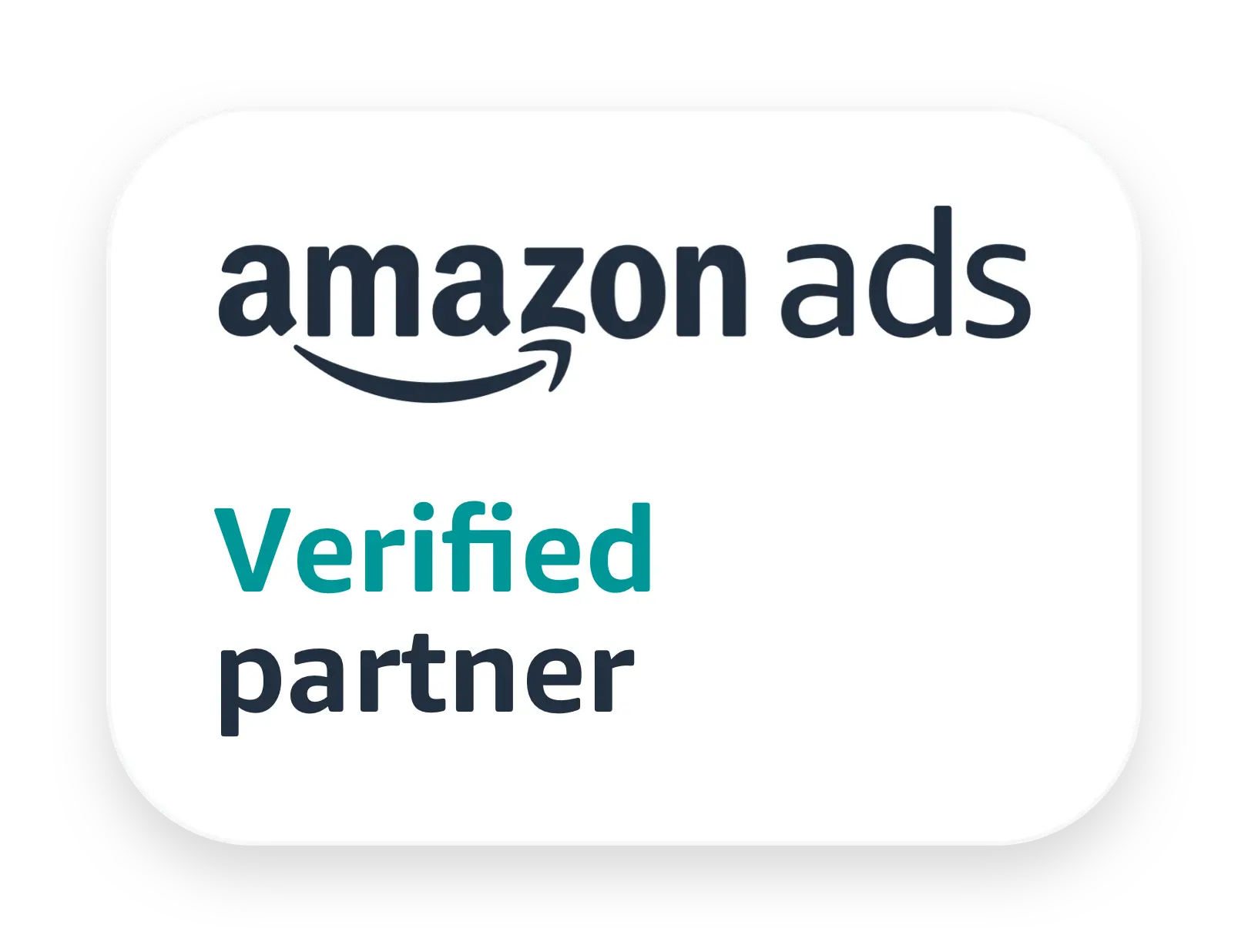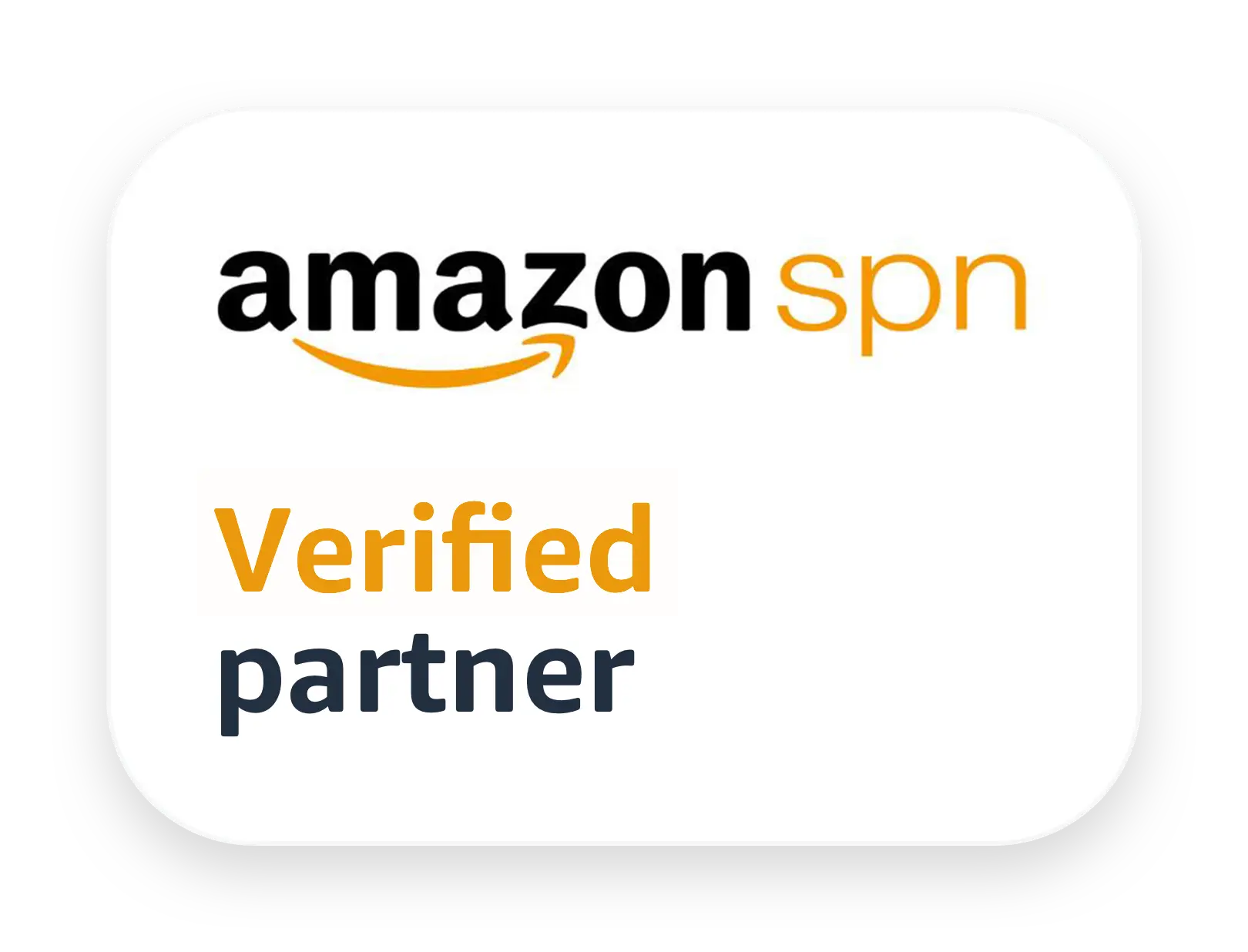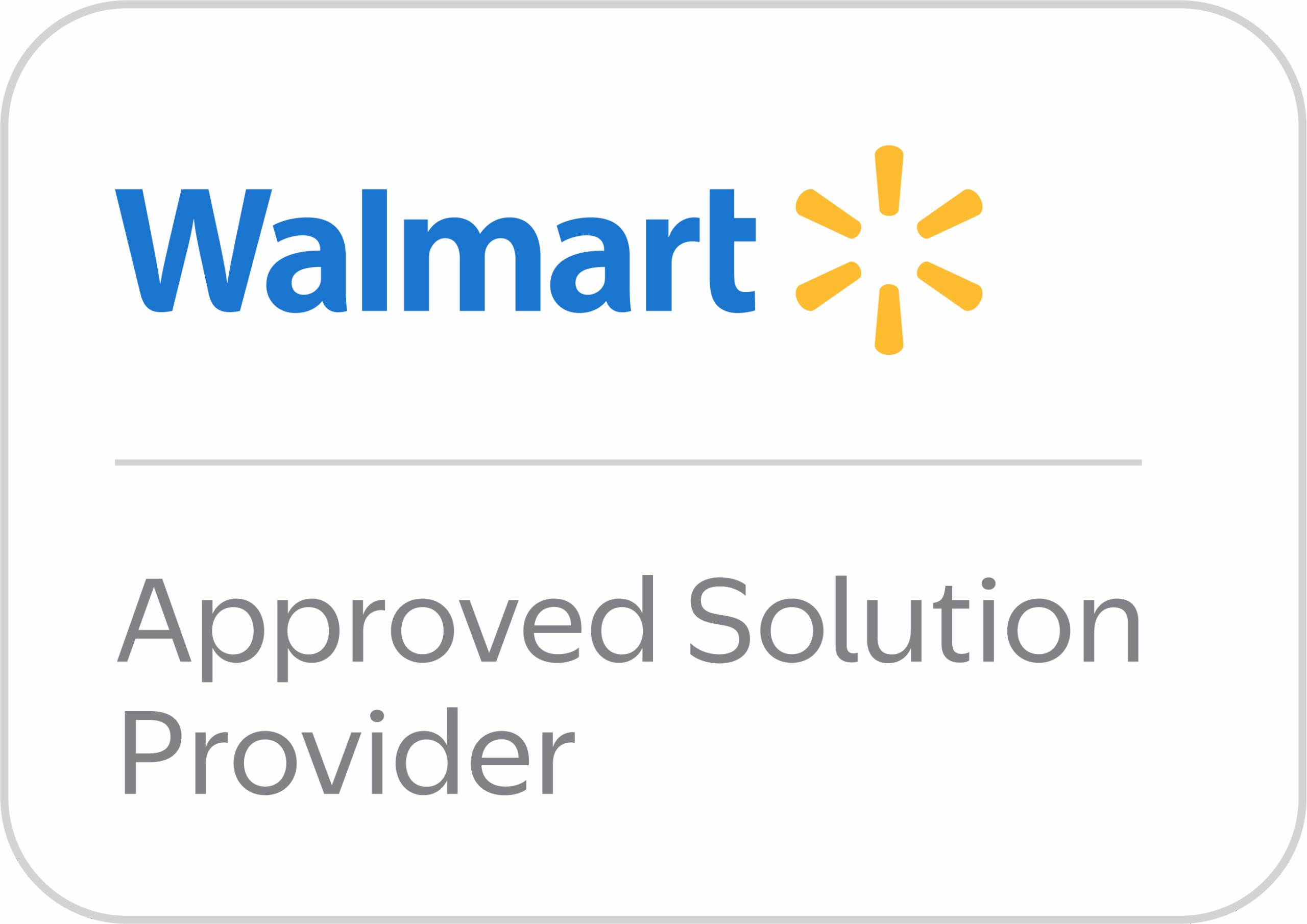Selling on Amazon is competitive. You’re not just listing a product—you’re entering a global marketplace with millions of active sellers, all fighting for attention. The difference between being buried on page 5 and dominating the first few results often comes down to one thing: how well your product listing is managed.
That’s where a listing management expert comes in. But hiring the right one isn’t as easy as browsing Fiverr or asking around in a seller Facebook group. You need someone who understands Amazon inside out—someone who can optimize, protect, and grow your listing as if it were their own.
This guide, brought to you by ZonHack, will walk you through how to find, evaluate, and hire the best Amazon listing expert for your business—step by step.
What Does an Amazon Listing Management Expert Do?
An Amazon listing expert is more than just a writer. They are part strategist, part SEO analyst, and part brand builder.
Their job is to make sure your listing performs—organically and through ads. This includes:
They handle:
- Creating compelling, keyword-rich titles and bullet points
- Optimizing product descriptions to boost conversion
- Researching relevant backend keywords
- Troubleshooting listing errors or suppressed ASINs
- Designing A+ Content or Enhanced Brand Content
- Monitoring listing performance and keyword indexing
- Ensuring Amazon TOS compliance to avoid suspensions
It’s a full-stack role that requires both creative and technical skills. A good expert understands that every word, image, and backend field matters.
Why Hiring an Expert (Not DIY) Makes a Difference
Yes, you could write your own listing. But the stakes are too high.
One poorly written line can turn off buyers. One missed keyword can sink your rankings. One policy mistake can get your listing suspended.
Here’s what sets a professional apart:
- Keyword indexing expertise: Professionals use Helium 10, DataDive, and Brand Analytics—not just gut instinct.
- Compliance awareness: They know what language triggers suppression (like medical claims or warranty promises).
- Conversion mindset: It’s not just about traffic, it’s about turning clicks into sales.
In fact, according to Marketplace Pulse, listings optimized by professionals often see conversion rate improvements of 15–30%, especially in competitive niches.
When Should You Hire a Listing Expert?
Not everyone needs one on day one. But certain signs make it obvious that it’s time.
1. Your listing isn’t converting
If you’re getting traffic from ads but sales are flat, it’s likely your listing isn’t doing the heavy lifting. A skilled expert can tweak titles, bullets, and images to address objections, highlight value, and close the sale.
2. You’re stuck on page 3
Even if your product is great, without keyword optimization and proper indexing, you won’t rank. The A10 algorithm favors well-structured listings—something experts know how to reverse-engineer.
3. You’re scaling fast
If you’re launching multiple SKUs, testing bundles, or entering new markets, it’s better to delegate listings so you can focus on growth.
4. You’ve been suspended or suppressed
An expert knows how to diagnose and fix these issues faster than Amazon Support. This alone can save you weeks of lost sales.
Skills Every Amazon Listing Expert Should Have
Not all listing experts are equal. Some are copywriters who’ve “learned Amazon.” Others are Amazon sellers who’ve developed sharp copywriting skills. Ideally, you want both.
Core knowledge to expect:
- Deep understanding of Amazon SEO and the A10 algorithm
- Ability to identify buyer search behavior through keyword tools
- Experience with flat file uploads and backend field management
- Awareness of category-specific rules, compliance guidelines, and restricted phrases
They should also understand your niche. Optimizing a clothing product is different from handling supplements or electronics.
Here’s a quick comparison:
| Skill Area | Must-Have |
| Keyword Research | ✅ |
| Backend Optimization | ✅ |
| A+ Content Strategy | ✅ |
| TOS Knowledge | ✅ |
| Niche Experience | ✅ |
| Flat File & Template Usage | ✅ |
If someone can’t confidently walk you through their keyword strategy or how they handle variation listings in flat files, they’re not ready.
What Tools Should a Listing Expert Know?
A serious expert will use data, not guesswork. Ask them which tools they use—and why.
Common tools include:
- Helium 10 – for keyword research, indexing, and competitor gap analysis
- Jungle Scout – for niche validation
- ZonGuru or DataDive – for in-depth optimization and tracking
- Canva or Photoshop – for A+ visuals and infographics
- Flat File Pro – for bulk uploads and troubleshooting listing errors
If they rely only on Seller Central, it’s a red flag.
Questions to Ask Before You Hire
Choosing someone to manage your listings is like choosing a business partner. Here’s how to vet them:
Ask:
- Can you show listings you’ve optimized—before and after?
- What is your process for keyword research and backend fields?
- Do you handle A+ Content, or just copywriting?
- Have you worked with sellers in my category?
- How do you stay updated on Amazon policy changes?
You’re not just hiring a freelancer. You’re trusting someone with your conversion funnel.
Red Flags to Watch Out For
Don’t get fooled by big promises and cheap rates.
Avoid anyone who:
- Guarantees “page 1 rankings” — this isn’t Google Ads
- Doesn’t understand Amazon’s restricted words
- Offers generic, copy-paste templates for all listings
- Avoids giving examples of past work
- Can’t explain indexing vs ranking
Should You Hire a Freelancer, an Agency, or a Dedicated Amazon Service?
There’s no one-size-fits-all answer. It depends on your business stage, budget, and goals.
Freelancers:
- Good for tight budgets
- Often flexible
- But may lack support, structure, or tools
Agencies:
- Structured processes
- Access to larger teams
- Sometimes too generic or bloated for smaller sellers
Amazon Specialists (like ZonHack):
- Laser-focused on Amazon growth
- Custom plans for solo sellers or large portfolios
- Access to Amazon-specific tools, strategies, and design support
- Ongoing listing management—not just one-time optimization
Why ZonHack Is Different
At ZonHack, we don’t just “fix” listings. We build high-performance product pages designed to convert.
Here’s how we approach listing management:
- Strategic Keyword Mapping: We use Helium 10, DataDive, and Brand Analytics to craft a complete keyword ecosystem
- TOS-Compliant Copywriting: Every word is tested for clarity, compliance, and click appeal
- A+ Content & Image Strategy: We design conversion-focused visuals—infographics, comparison charts, and benefit-driven modules
- Listing Suppression Recovery: If your ASIN disappears, we don’t wait—we fix it
- Ongoing Support: We don’t disappear after upload—we monitor performance and re-optimize as needed
We’ve helped sellers increase conversion rates by 22–37% through strategic listing rewrites and A+ rollouts.
How to Evaluate a Listing Expert’s Impact (What to Look For After Hiring)
Hiring an expert is only half the job. Measuring their results is what turns this into a smart investment.
But don’t expect instant magic. Amazon’s algorithm takes time to adapt, and indexing can shift over days or weeks. Instead, look for consistent signals of improvement across a few key areas.
1. Keyword Indexing
Within 5–10 days of optimization, your product should begin indexing for more relevant keywords.
Use Helium 10’s Index Checker or manual ASIN searches to track which keywords your listing is now visible for. A strong listing expert typically adds 30% to 50% more indexed keywords—especially if backend fields were underused before.
2. Improved Conversion Rate
Compare unit session percentage before and after optimization.
This is found in Seller Central under:
Reports > Business Reports > Detail Page Sales and Traffic
If your unit session % goes from 12% to 18%, that’s a 50% increase in conversion. Even a 3–5% lift can result in thousands in additional revenue monthly, especially in high-traffic categories.
3. Ranking Movement
Use keyword rank tracking tools (like Keyword Tracker by Helium 10) to monitor if your product moves up for major keywords.
Ask your expert which search terms they’re targeting—and watch how rankings shift over the next 2–4 weeks.
4. Lower ACOS (When Listings Work with PPC)
Strong listings improve PPC performance too. With better content and higher relevancy, your ad quality scores go up. That means:
- Lower CPC
- Better ad placements
- Higher conversion rates
- Lower overall ACOS
At ZonHack, we often see ACOS drop by 8–20% just from reworking the listing, before even touching PPC campaigns.
ZonHack’s Flexible Listing Management Plans
Whether you’re launching one product or managing 30 SKUs, ZonHack offers tailored listing management plans for different seller needs.
| Plan | Best For | Features Included |
| Launch Boost | New Sellers, Single Product | Keyword research, listing copywriting, backend setup, basic A+ recommendations |
| Growth Engine | 3–10 Product Portfolio | Includes above + A+ content creation, indexing tracking, suppression handling |
| Brand Partner | Brands with 10+ SKUs | Full-stack listing management, flat file uploads, compliance monitoring, re-optimization cycles |
| Enterprise | High-volume or Global Sellers | Dedicated strategist, international listings, daily performance tracking, premium support |
All plans include compliance review, keyword strategy, and seller support. We don’t just optimize—we manage listings as an extension of your team.
FAQs About Hiring Amazon Listing Experts
How much should I expect to pay for a professional listing?
Prices vary based on scope. Freelancers might charge $150–$500 per listing, while agencies or services like ZonHack offer full-service packages starting around $399/month, depending on volume.
Can a great listing really increase sales?
Yes—if done right. We’ve seen sales double or triple after a listing is optimized, especially if the original version lacked keyword depth, proper structure, or conversion-focused visuals.
What’s the difference between a listing copywriter and a listing manager?
A copywriter writes content. A listing manager handles everything from keyword research, compliance, backend setup, A+ content, troubleshooting errors, and ongoing updates. You want the latter if you’re serious about growth.
How do I know my expert used the right keywords?
Ask them for a keyword report. Professionals will always show you which tools they used, what keywords they’re targeting, and how they fit into your title, bullets, and backend.
Bottom Line: A Listing Is Not a Set-and-Forget Asset
Your Amazon listing is a living part of your business.
It needs to evolve with:
- Seasonal demand
- Customer reviews
- Competitor changes
- Amazon’s algorithm updates
That’s why hiring the right expert isn’t a one-time job—it’s an ongoing strategy for ranking, revenue, and long-term brand health.
At ZonHack, we don’t just write listings—we build conversion engines tailored to your niche, your goals, and your growth stage.
Ready to Upgrade Your Listings?
Whether you’re launching a new product, scaling a brand, or recovering a suppressed ASIN—ZonHack can help.
Talk to our Amazon specialists today. Let’s turn your listing into your best-performing salesperson.
Visit ZonHack.com to get started.




